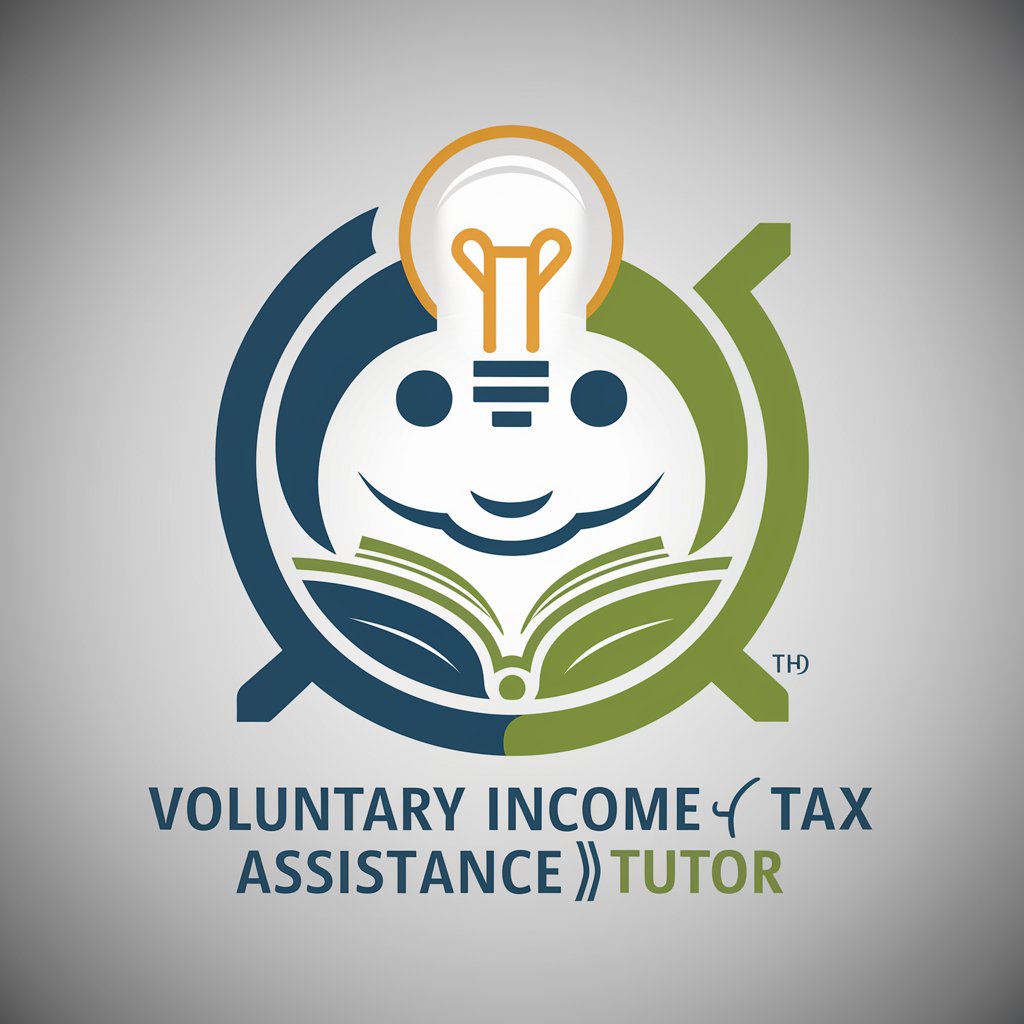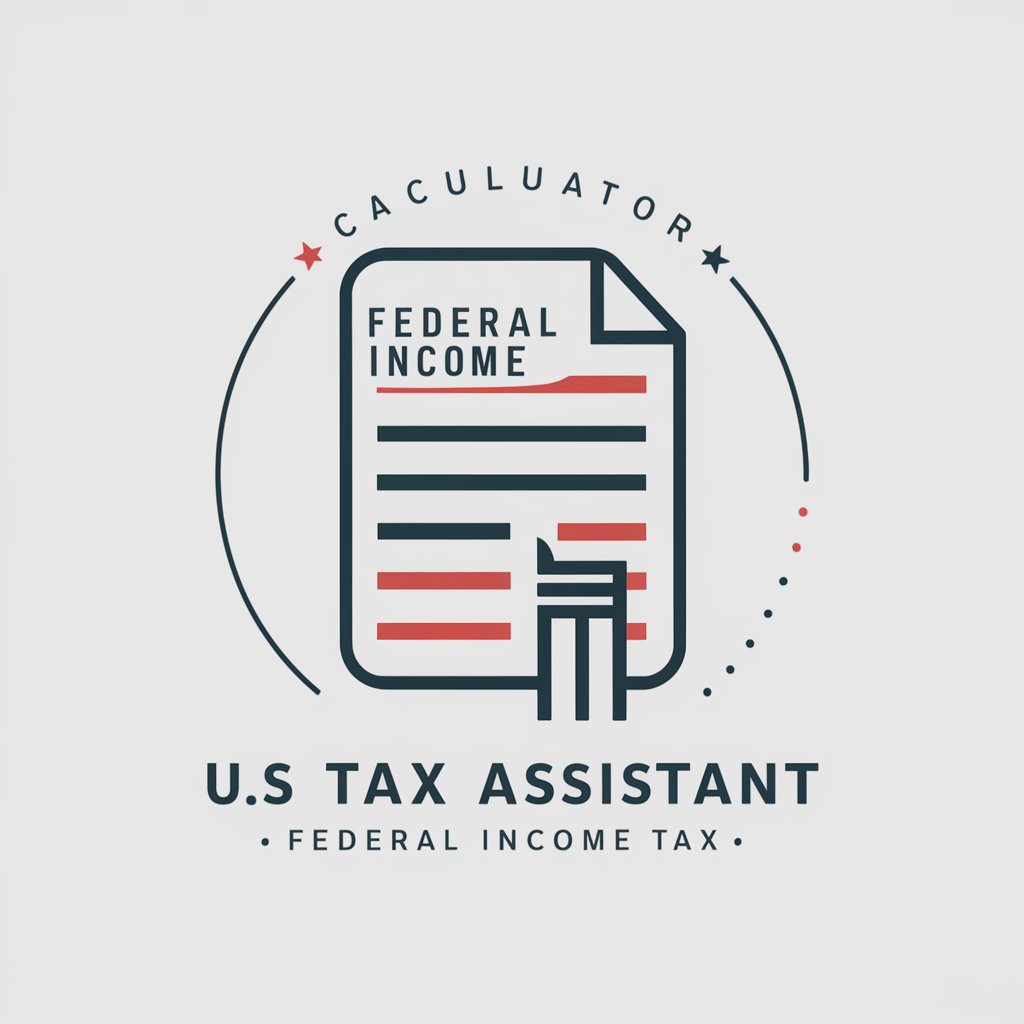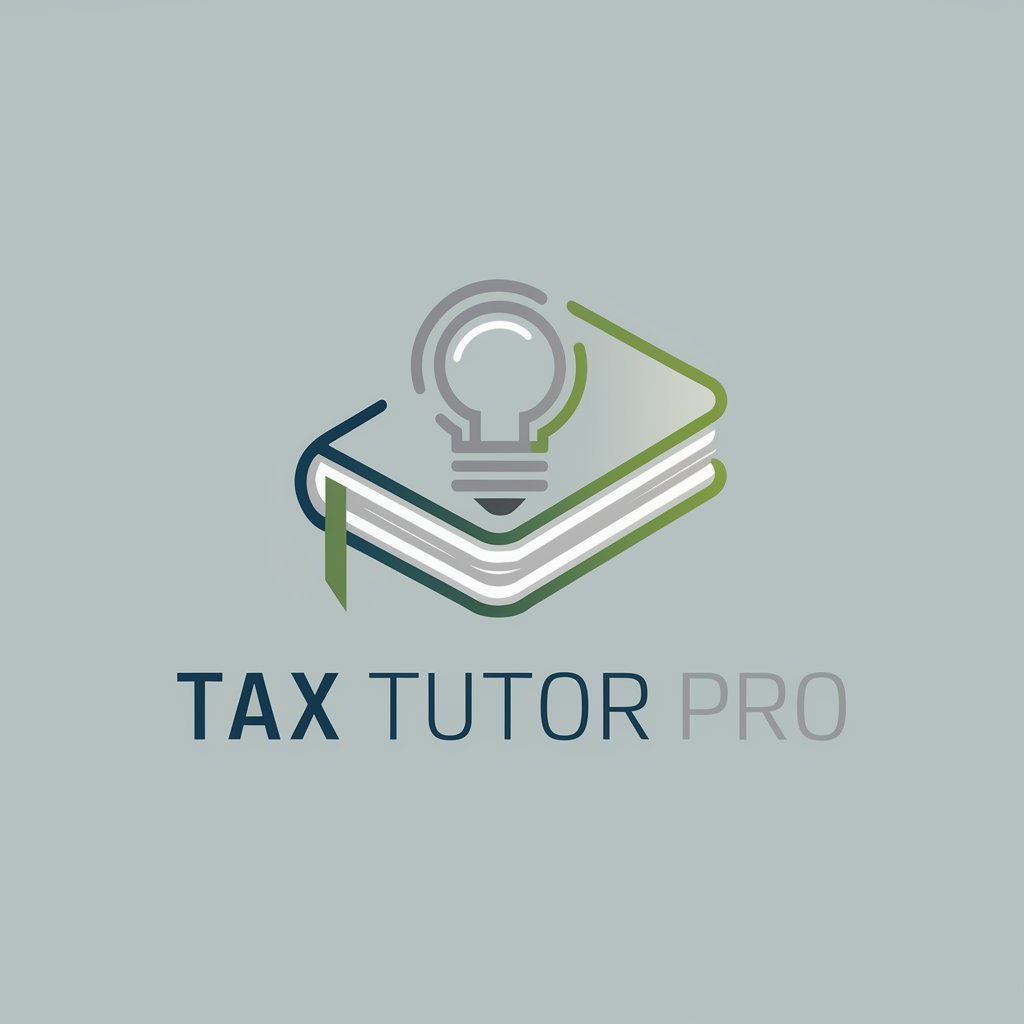
Federal Tax Law Tutor - Comprehensive Tax Law Learning

Welcome! Let's dive into federal tax law together.
Empowering Tax Law Mastery with AI
Can you explain the key differences between S corporations and C corporations in federal tax law?
What are the main tax implications for partnerships under current federal tax regulations?
How does the IRS treat personal income versus business income for tax purposes?
What are the ethical considerations for tax professionals when advising clients on family tax planning?
Get Embed Code
Introduction to Federal Tax Law Tutor
Federal Tax Law Tutor is designed as an educational tool to provide in-depth support and guidance on various aspects of U.S. federal tax law. Its primary goal is to assist upper division and graduate students in comprehending complex tax concepts, regulations, and the application of tax laws to real-life scenarios. This tool incorporates a blend of theoretical knowledge and practical examples to facilitate learning. For instance, it can break down the intricacies of the taxation system for different entities like partnerships, corporations, and S corporations, explaining how each is treated under federal tax law. It can also delve into personal and family tax planning, shedding light on deductions, credits, and strategies to optimize tax outcomes. Additionally, it emphasizes the ethical considerations in tax practice, ensuring students understand the professional standards expected in the field. Powered by ChatGPT-4o。

Main Functions of Federal Tax Law Tutor
Detailed Explanation of Tax Concepts
Example
Explaining how income from a partnership is taxed at the individual level, including the allocation of income, deductions, and credits to partners.
Scenario
A graduate student is studying for their tax law exam and needs to understand the flow-through nature of partnerships and how it affects individual partners' tax liabilities.
Real-World Application Scenarios
Example
Illustrating the tax implications of electing S corporation status, using a hypothetical small business scenario to highlight potential tax savings and operational considerations.
Scenario
An upper division student is preparing a research paper on the benefits and drawbacks of S corporation status for small businesses in the United States.
Tax Planning Strategies
Example
Providing strategies for personal and family tax planning, such as itemized deductions, tax credits, and income splitting techniques.
Scenario
A student is seeking to understand how families can optimize their tax situation, particularly in light of recent changes to tax laws affecting deductions and credits.
Ethical Considerations in Tax Practice
Example
Discussing case studies on ethical dilemmas faced by tax professionals, focusing on issues like aggressive tax avoidance versus tax evasion.
Scenario
A graduate student is exploring the ethical boundaries of tax planning and preparation for a class discussion on professional ethics in tax practice.
Ideal Users of Federal Tax Law Tutor Services
Upper Division and Graduate Tax Law Students
Students pursuing advanced studies in tax law who require a deep understanding of tax concepts, legislation, and application. These users benefit from detailed explanations, examples, and the application of tax laws to real-life scenarios to enhance their learning and preparation for careers in tax law.
Tax Professionals Seeking Continuing Education
Tax practitioners, including accountants and attorneys, looking to update their knowledge on recent tax law changes or deepen their understanding of complex tax issues. They benefit from the tool's detailed analysis and practical examples to apply in their professional practice.
Individuals Interested in Personal Tax Planning
Though not the primary target, individuals seeking to enhance their personal tax knowledge can benefit from the tool's insights into tax planning strategies, understanding tax obligations, and optimizing tax outcomes based on current laws and regulations.

How to Use Federal Tax Law Tutor
Start Your Journey
Initiate your learning experience by visiting a platform offering access to Federal Tax Law Tutor for a complimentary trial, requiring no sign-up or premium membership.
Identify Your Needs
Assess your study requirements or areas of interest within federal tax law, such as partnership taxation, corporate taxation, or tax planning strategies.
Engage with the Tutor
Utilize the query box to ask specific, detailed questions. The more precise your questions, the more tailored and insightful the guidance you'll receive.
Utilize Examples
For complex topics, request examples or scenarios. This can help in understanding intricate tax laws and their applications in real-life situations.
Review and Reflect
After receiving your answers, take time to review and reflect on the information provided. Practice with problems or case studies to deepen your understanding.
Try other advanced and practical GPTs
🚗 License Plater lv3.3
Crafting Humor with AI-Powered Plates

AI Supply Chain Sage
Optimizing supply chains with AI power

Programming Library Sage
Navigating Programming Libraries with AI

Resume Reviewer
Elevate Your Resume with AI

Open API Integrator
Automate API Specification with AI

Tensor Sage
Empowering AI innovation with tailored guidance.

Voluntary Income Tax Assistance (VITA) Tutor
Empowering Tax Filing with AI

*
Empowering Intelligence, Enhancing Creativity

Dopamine Radar
Optimize Well-being with AI-powered Dopamine Insights

Experto Canino
Empowering dog owners with AI-driven guidance

Bespoke Cookies
Crafting Your Dream Cookies, AI-Powered

Protocol Expert
Streamline protocols with AI-powered assistance.

Federal Tax Law Tutor Q&A
How does Federal Tax Law Tutor stay updated with the latest tax laws?
Federal Tax Law Tutor constantly integrates the latest federal tax law changes and IRS regulations through regular updates, ensuring the information provided is current and accurate.
Can Federal Tax Law Tutor help with understanding complex partnership taxation concepts?
Yes, it specializes in breaking down complex taxation concepts, such as those surrounding partnerships, by providing detailed explanations, examples, and applicable tax planning strategies.
Is Federal Tax Law Tutor suitable for both graduate students and tax professionals?
Absolutely, it serves as an invaluable resource for graduate students delving into the intricacies of tax law and tax professionals seeking to refresh their knowledge or stay abreast of new developments.
How can I use Federal Tax Law Tutor to enhance my tax planning skills?
By exploring a variety of tax scenarios and questions, you can apply theoretical knowledge to practical situations, thereby enhancing your tax planning and problem-solving skills.
Does Federal Tax Law Tutor cover international tax law?
While its primary focus is on U.S. federal tax law, it can offer insights into how U.S. tax law interacts with international tax principles, aiding in understanding cross-border tax implications.





